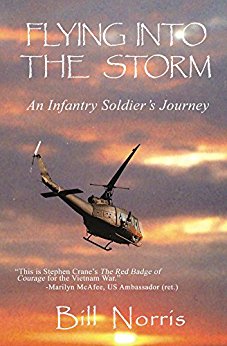MWSA Review
“Fires of October” is a critical and detailed analysis of the military aspects of the Cuban missile crisis in1962. By outlining the strength of Soviet tactical and strategic nuclear weapons in Cuba, and the use of these weapons delegated to commanders in the field, it shows how close we came to a nuclear conflict.
While the diplomatic maneuvering was going on between Washington and Moscow over removal of long range strategic missiles, author Blaine Pardoe takes the reader through the evolution of rapidly turning contingency plans into operational plans for the bombing and invasion of Cuba by U.S. forces. He uses many charts, maps and photographs to illustrate detailed capabilities and organizations of weapons, troops, aircraft, targets and other resources available to the Americans, Soviets and Cubans.
“Fires of October” also shows flaws in the American intelligence capabilities of that era, i.e. reconnaissance aircraft limited to daytime runs and the Soviet combat forces on the island estimated at half of their actual 40,000-man strength. This would have, the author asserts, created serious problems for the paratroops and marines during their assault on the island. Pardoe provides a thoughtful analysis of how the American invasion would have been countered by crack Russian troops and seasoned Cuban fighters. He also said the planners had flawed assumptions that the Cuban populace would rise up in rebellion against Castro
The constant changing of the invasion plans created confusion among U.S. Military commanders in all branches. For example, the Strategic Air Command and Tactical Air Command took over all the military airfields in Florida, but no provisions were made for those fields to handle the air transports needed for two airborne divisions. Other conflicts developed between various U.S. Army commands as areas of responsibility became blurred.
The most chilling revelations of “Fires of October” were the numbers of tactical and strategic nuclear weapons scattered about Cuba. Tactical commanders could easily, the author theorized, have used a small nuclear missile to seriously cripple the U.S. base at Guantanamo Bay. Soviet doctrine was for commanders to prevent their nuclear weapons to fall into the hands of an enemy.
This well documented history explores scenarios that if war broke out in Cuba, what might happen if the Soviets try to force the allies out of Berlin or even launch a preemptive all-out nuclear strike on the U.S. With six divisions tied up in a war in Cuba, the U.S. would not have the resources to reinforce American defenses in Europe.
“Fires of October” and its thorough analysis of the logistical and operational headaches created in a rapidly developed invasion plan is a fascinating study of the early 1960s capabilities of the U.S. military. But it can also be easily understood by a lay reader. I recommend it.
Reviewed by: Joe Epley (2014)
Author's Synopsis
It was the closest we ever came to unleashing the Third World War.... The image of that world was so horrible to contemplate that both sides stepped away from that precipice and opted for peace. Fires of October is the exhilarating military history of the Cuban Missile Crisis exploring in detail the strategic plans implemented by American Armed Forces as they headed towards a catastrophic nuclear collision with Cuba and the USSR. Using recently declassified material, Blaine Pardoe systematically recounts the origins of the crisis, from the Berlin Crisis of 1961 and Cuba s military metamorphosis, to the internal disorganization of the US military, which exacerbated tensions between the USA, Cuba, and the USSR. Pardoe reveals that the invasion plans were based on old intelligence, outdated maps, and misconceptions about the size, strength, and composition of the Soviet forces in Cuba; for the first time, and with harrowing results, he scrutinizes the potential fallout had the invasion gone ahead. Gripping and unnerving, Fires of October shows us just how close the world came to nuclear war.




















